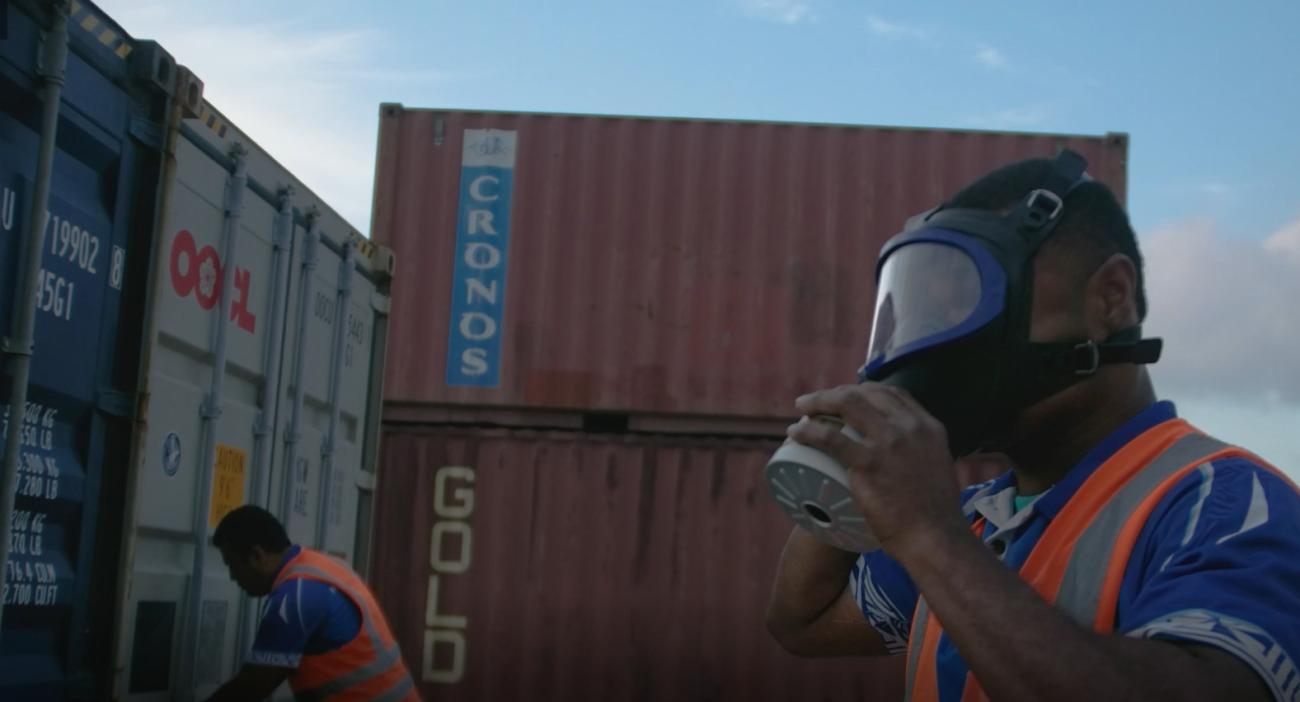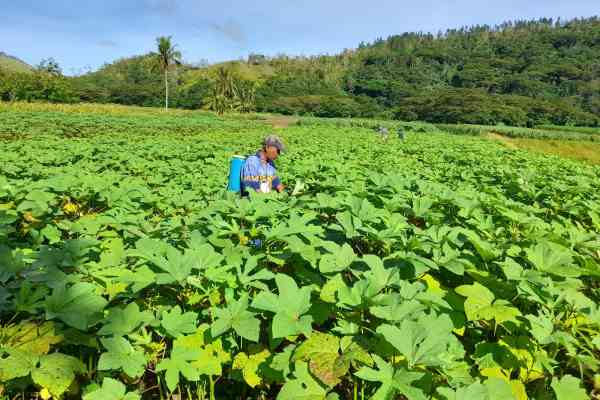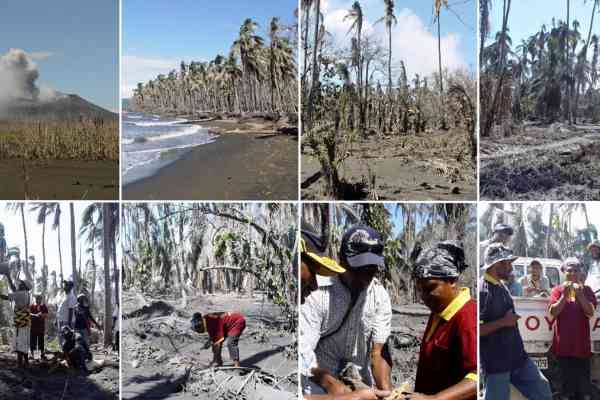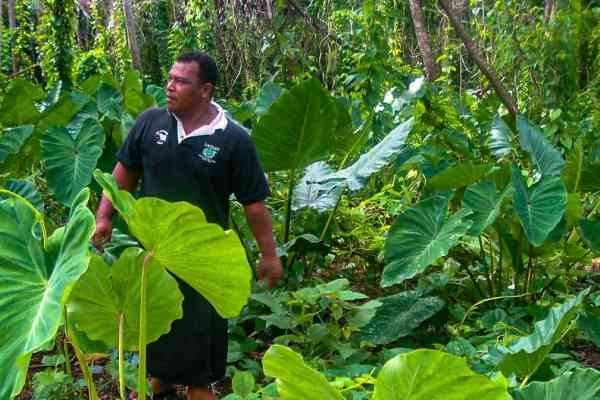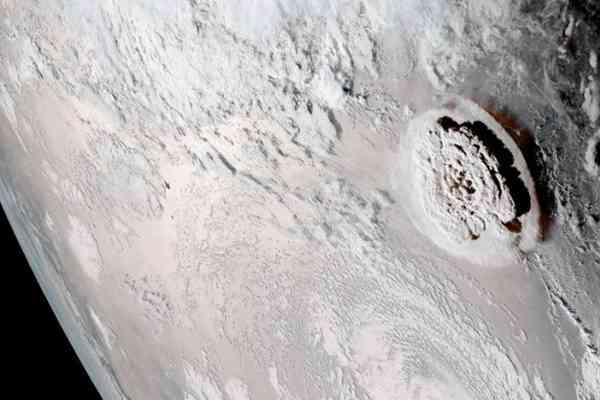Photo: Biosecurity officers inspecting a container
On January 15, 2022, the global community was shocked by a massive underwater volcanic eruption in Tonga, the largest in over three decades. The Hunga Tonga-Hunga Ha’apai volcano eruption triggered a tsunami and massive ash clouds and set off a sonic boom that was felt across the world. On top of grappling with the COVID-19 crisis, the world rushed to coordinate a humanitarian effort for the people of Tonga and the nearby island nations affected.
World Humanitarian Day on August 19 commemorates humanitarian workers and celebrates the spirit of solidarity and humanity in people and communities helping each other. It also recognises the risks involved with relief and aid work, as humanitarian workers often respond to crises and conflicts in the face of threats and even death.
The Pacific region, often portrayed with stereotypical postcard scenic imagery, is prone to natural disasters like tropical cyclones, earthquakes, and tsunamis, exacerbated by the growing climate crisis. Humanitarian efforts and aid from the global community are integral to recovery from disasters and forging resilience.
Relief aid can be of various kinds and is often gathered from multiple sources and distributed where it is needed by donor governments, inter-government agencies, non-governmental organisations (NGOs), civil society organisations (CSOs) and even community groups. While aid is vital to saving lives, if it is not sourced, packaged and shipped responsibly it poses a considerable threat to receiving countries as it could also serve as a main entry pathway for invasive species, pests and diseases.
More and more, the Pacific is facing critical emerging biosecurity threats impacting plant and animal health. These transboundary threats can quickly spread and have the potential to be established through humanitarian/relief consignments if left unchecked. Some recent examples include new occurrences of the severe animal disease African Swine Fever and plant pests such as the Giant African Snails, Fall Armyworm, and the Coconut Rhinoceros Beetle (CRB), the latter a significant pest for the coconut industry. After recent incursion of the beetle in several Pacific Island Countries, Vanuatu is the latest country to report a new strain of this beetle (CRB-G – Coconut Rhinoceros Beetle Guam type) that is potentially more dangerous than previous strains.
In addition to the economic and environmental devastation caused by invasive species, they also affect community resilience during times of crisis, conflict, and natural disasters, as the health of plants, animals and ecosystems are compromised.
To address this, the Pacific Community works closely with its participating Member Countries and their respective Ministries and biosecurity agencies to support and improve the capacity of regional biosecurity. The emergence of COVID-19 places a spotlight on the Pacific’s vulnerabilities, and the need to build more robust and comprehensive biosecurity systems.
Following the Tongan volcano eruption, the Pacific Plant Protection Organisation (PPPO) Secretariat Team that sits within SPC’s Land Resources Division (LRD) collaborated with Australian biosecurity teams and compiled a series of essential fact sheets to raise awareness of biosecurity concerns relating to the provision of humanitarian aid. The fact sheets provided an overview of biosecurity risks and important standards and guidelines, and were not limited to plant health but also covered animal health and the overall welfare of Pacific communities.
SPC is also implementing the Safe Agricultural Trade Facilitation through Economic Integration in the Pacific (SAFE Pacific) project funded by the European Union across 15 countries, including the Cook Islands, Fiji, Federated States of Micronesia, Kiribati, Marshall Islands, Nauru, Niue, Palau, Papua New Guinea, Solomon Islands, Samoa, Timor-Leste, Tonga, Tuvalu and Vanuatu. SAFE Pacific is focused on improving regional trade integration to improve the economic livelihoods of Pacific people and overall food and nutrition security.
As part of the project, SPC works closely with Member Countries and relevant key development partners to enhance compliance with international standards and sanitary and phytosanitary (SPS) measures. SPS measures are internationally accepted biosecurity, and quarantine methods and procedures that are necessary to protect human, animal and plant health. In addition, capacity building and training workshops are held for relevant national Ministries and biosecurity agencies to better carry out essential tasks at the pre-border, border and post-border levels. This support to national biosecurity agencies includes providing equipment to build border control and safe trade capabilities.
Ensuring strong regional biosecurity minimises the potential for a toxic cycle wherein relief supplies create another humanitarian crisis threatening the country’s biodiversity and short-term and long-term food and nutrition security. Improving efficient processes helps to facilitate faster relief and access to humanitarian aid for communities in urgent need. Ultimately, biosecurity is the first line of defence to keep humanitarian and environment work safe and must be prioritised to ensure that help is being provided where needed and the wellbeing of humans, animals and plant life is protected.
